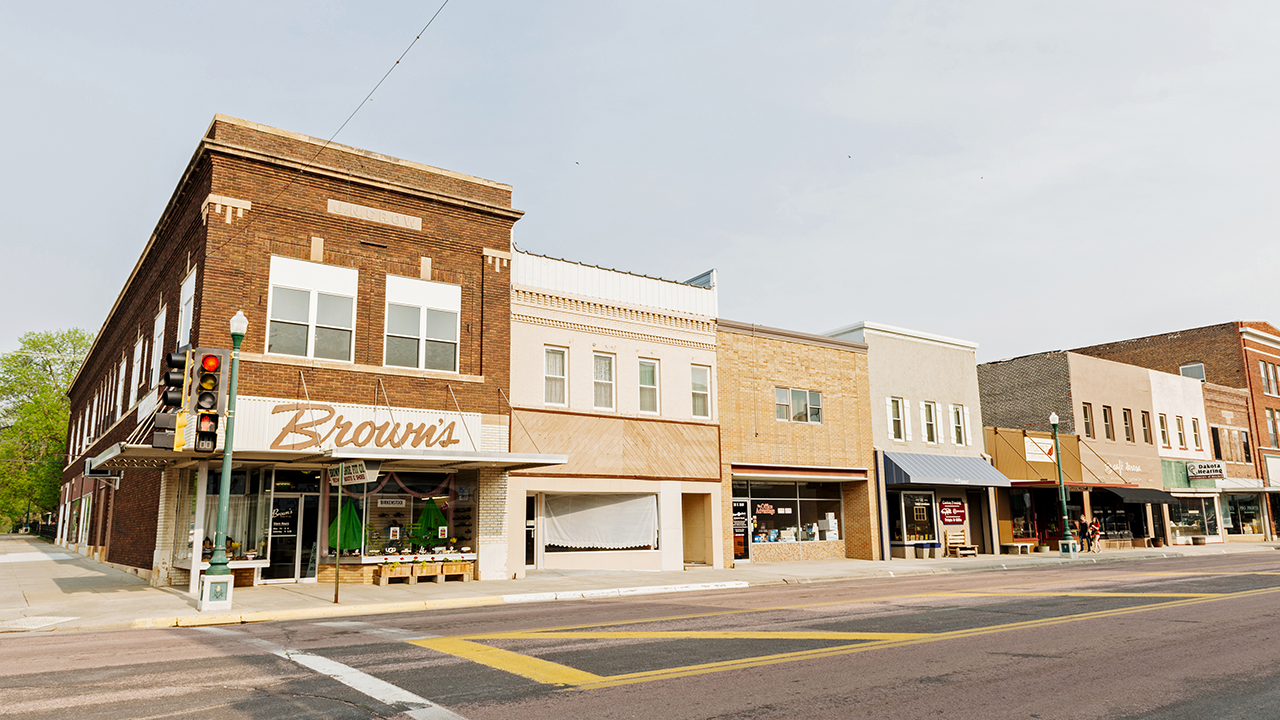
Back in 2005, Gibson Nene wrote his master’s thesis at the University of Nebraska about how a big-box retailer affected economic growth in state communities. His research found Nebraska counties that had a Walmart store showed lower economic growth than those without.
The research got him thinking: if a big businesses like Walmart slowed economic growth, what effect did small businesses have? Recently, Nene, Ph.D., and Melaku Abegaz, Ph.D., both assistant professors of economics in the University of Minnesota Duluth’s Labovitz School of Business and Economics, set out to determine how small business entrepreneurship affects poverty levels in rural communities. The rural focus of their project filled a gap left by previous studies, which had mainly looked at this relationship in cities.
“Most of the studies on US poverty focused on understanding the factors affecting poverty in urban communities,” Nene said. “That’s why we wanted to see if the results from the rural side would be consistent with the urban side.”
The relationship between small businesses and poverty levels may not work the same way in cities as it does in small towns, Nene said, as the makeup of poverty in these two settings can be very different.
“In rural areas, poverty is more persistent and highly influenced by the social, cultural, and economic structure of the society,” he said. “Rural areas are generally characterized by limited infrastructures, weak formal institutions, dependence on agriculture, lower human capital, and lower cost of living. To their advantage, however, rural societies have stronger informal institutions and social capital compared to urban areas. In such circumstances, policies, institutions, and businesses may lead to different effects on urban vis-à-vis rural poverty.”
While research specific to US rural areas was lacking, data from developing countries had demonstrated that small businesses improved poverty in rural areas. To figure out if the same was true in the US, Nene and Abegaz scoured data from three federal agencies—the Bureau of Economic Analysis, Bureau of Labor Statistics, and Department of Agriculture—to see how small business entrepreneurship affected poverty rates across 604 rural US counties between 2010 and 2012.

Helping Rural Communities Prosper
Their findings confirmed expectations—at least for the smallest of the small businesses. Entrepreneurial activity by “micro-enterprises” with fewer than 20 workers was associated with lower poverty rates across rural counties. The benefits of these businesses come in several forms, including new job opportunities and sources of income for residents of the community, as well as creating “social capital” that could end up attracting people from outside the community to move to the area and spur further economic growth.
The findings also posed some unexpected questions. Small businesses with slightly more employees (between 20 and 99 workers) did not appear to help reduce poverty during the study period. While part of the explanation may reside in how few businesses of this size are present in rural communities, it’s a mystery as to exactly why this discrepancy exists.
“That’s a question that remains, and it’s something we’ll look into,” Nene said. “For now, we know that really small businesses are beneficial to rural communities.”
In the meantime, Nene said he sees the creation of small businesses as one effective way for rural areas to combat poverty, and organizations like the US Small Business Administration (SBA) can help promote new business formation. The SBA, a federal agency that helps aspiring entrepreneurs start, build, and grow their businesses, provides education and training opportunities that help new entrepreneurs succeed and also offers grants to support new businesses, with many of these grants focused on promoting entrepreneurship among minorities, women, and veterans.
These programs are important resources for ensuring rural communities actually benefit from micro-enterprises, Nene said, as businesses must first be able to succeed to have a lasting, positive effect on their communities.
“A lot of small businesses are formed, but a lot of them disappear as well,” he said. “We need not only to create small businesses, but to sustain them.”